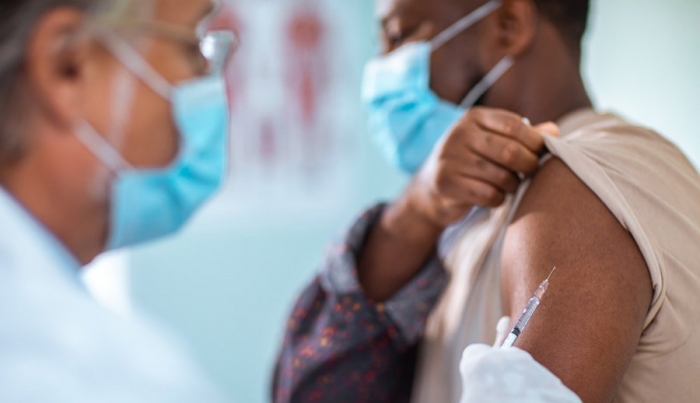CDC Says All Vaccines Offer Strong Resistance to the Virus

According to a new report from the Centers for Disease Control and Prevention, two-dose regimens of the Moderna and Pfizer-BioNTech mRNA vaccines provided a high level of protection against COVID-19 hospitalizations in a real-world evaluation at 21 U.S. hospitals during the period between March 11 and August 15.
Vaccine effectiveness against COVID-19 hospitalization for Moderna and Pfizer-BioNTech doses were 93 percent and 88 percent, respectively, whereas the single-dose Janssen [Johnson & Johnson] vaccine had a lower effectiveness rate at 71 percent.
Protection for the Pfizer-BioNTech vaccine declined four months after vaccination.
Released Friday, September 17, the report revealed that individuals vaccinated with the Janssen vaccine also had lower postvaccination anti-SARS-CoV-2 antibody levels than did recipients of mRNA vaccines.
In addition, although an immunologic correlate of protection has not been established for COVID-19 vaccines, the researchers found that antibody titers after infection and vaccination have been associated with protection.
“These real-world data suggest that the 2-dose Moderna and Pfizer-BioNTech mRNA vaccine regimens provide more protection than does the 1-dose Janssen viral vector vaccine regimen,” the researchers wrote.

“Although the Janssen vaccine had lower observed vaccine effectiveness, one dose of Janssen vaccine still reduced risk for COVID-19–associated hospitalization by 71 percent.”
The study included 3,689 patients.
Overall, 2,362 (64 percent) were unvaccinated; 476 (12.9 percent) were fully vaccinated with the Moderna vaccine; 738 (20 percent) were fully vaccinated with the Pfizer-BioNTech vaccine, and 113 (3.1 percent) were fully vaccinated with the Janssen vaccine.
Among all participants, the median age was 58 years, 48 percent female, 23 percent non-Hispanic Black, and 18 percent Hispanic.
Efficacy for the Moderna vaccine was 93 percent at 14 to 120 days (the median equaled 66 days) after receiving the second vaccine dose and 92 percent after 120 days (with the median equaling 141 days).
For Pfizer-BioNTech, efficacy stood at 91 percent at 14 to 120 days (the median equaled 69 days) after receiving the second vaccine dose but declined significantly to 77 percent at more than 120 days (the median equaled 143 days).
The postvaccination antibody analysis included 100 healthy volunteers, 32 fully vaccinated with Moderna, 51 fully vaccinated with Pfizer-BioNTech, and 17 with Janssen.
Antibody levels were higher in participants vaccinated with the Moderna vaccine than those who received the Pfizer-BioNTech vaccine or the Janssen vaccine.
The report revealed that anti-spike levels in participants vaccinated with the Moderna vaccine did not significantly differ from those in recipients of the Pfizer-BioNTech but were considerably higher than levels in participants who received the Janssen.
The report arrives as a U.S. Food and Drug Administration panel reviewed the need for booster shots of the Pfizer-BioNTech coronavirus vaccine.
The panel also expected to vote on whether the agency should approve additional doses for people 16 and older.
“We will evaluate and see,” said Dr. James Hildreth, the president and CEO of Meharry Medical College and an FDA panelist deciding on the booster shots.







